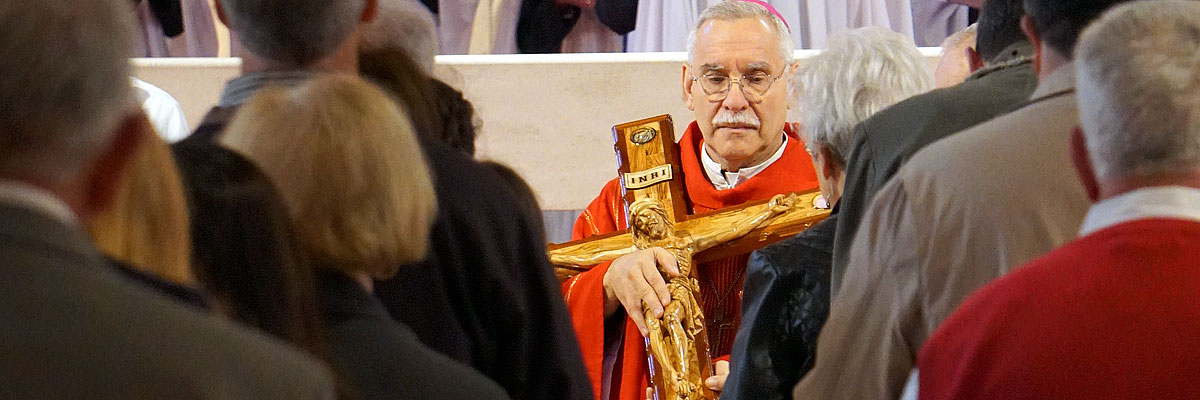Official Website of the
Catholic Diocese of Little Rock
Happiness, wholeness, holiness comes from losing oneself in Christ
Published: December 3, 2005
By Charles T. Sullivan
For me personally, one of the most difficult topics to write about is holiness. It is hard for two reasons. First, I realize only too well that I am not holy and therefore have no right to offer myself as an authority on the subject. And secondly, even though I know I should be holy, I far too often resist God’s bountiful grace and instead choose to turn away from him. How I wish that were different!
All of us are called to the fullness of Christian life — that is, we are all called to be holy. (see “Lumen Gentium,” 40) There are, of course, many different vocations and thus many different paths to holiness. But the essence of the call is nonetheless the same for each one of us: “Be holy,” says the Lord, “as I am holy.”
“Incorporated into Christ by baptism, Christians participate in the life of the Risen Lord.” (“Catechism of the Catholic Church,” 1694) United with Christ, we strive to model our own lives on the life of Jesus so as to be found worthy of our calling as beloved children of God. (see Ephesians 5: 1-2) We do this because we know that Christ is “the Way, the Truth, and the Life” and that only in perfect union with him can we achieve our personal destiny and find true fulfillment and genuine happiness.
Holiness is not just the absence of sin; it is the presence of Christ. Spiritual progress tends us toward ever more intimate union with Christ.
The saints all tell us that there is a profound link between holiness, wholeness and happiness. The path to holiness, they attest, is the very same path to self-actualization and selffulfillment. There is a great paradox here: the more we forget about ourselves and strive to imitate Christ, the more of “ourselves” we become!
“Give up yourself,” said C.S. Lewis in “Mere Christianity,” “and you will find your real self. Look for Christ and you will find him, and with him everything else thrown in.”
Life graced by the Spirit fulfills the vocation of humankind. Real happiness is found in God alone — the source of every good and font of all love. (catechism, 1723)
To look for happiness apart from God is to court disillusionment and despair. The secret is to focus not on what we think we want or desire, but on what God desires of us. And what does God want for us? He wants to live in and through us; he wants us to love as Jesus loved. Quite simply, he wants us to become saints. Becoming a saint means losing ourselves in Christ so that we can become the “best possible version of ourselves.” (“Rediscovering Catholicism,” Matthew Kelly)
It is only in this process of “losing and becoming” that we uncover the authentic person that God intends and discover the profound joy for which we were made.
This, it seems to me, is the mystery of holiness in a nutshell. The only way we can ever find genuine happiness is to become the best version of ourselves possible. The only way to become the very best we can be is to sincerely pursue sanctity, our ultimate calling. And the only way to achieve holiness of life is to stop thinking about ourselves altogether and focus instead on Christ. To be happy, whole and holy, we must become “little Christs.”
“For me,” said St. Paul, “life is Christ.” (Philippians 1:21)
Charles T. Sullivan, a member of St. Bernard Catholic Church in Bella Vista, has a master’s degree in theology from the University of Dallas.









